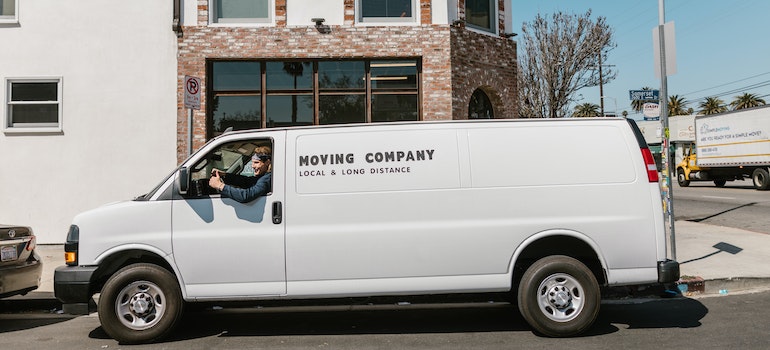In the moving industry, just like in any other industry, there are certain guidelines that need to be followed. Obviously, when you need to find a moving company for your needs, you are going to try to find out which ones are trustworthy. Trustworthiness in the moving business comes down to being true to your word, true to your estimates, and to the quality of the provided service. However, it can sometimes be difficult to make out which company meets such criteria. After all, laid out like that, the aforementioned criteria sound somewhat vague, doesn’t it? That is why at Verified Movers we have decided to show you who regulates moving companies. Knowing this will help you understand where you can find out if the movers you’re considering are legitimate professionals and whether you should put your trust in them.
Introduction to moving company regulations
The moving industry is just like any industry. It has laws and rules that companies need to abide by in order to run a business legally. And, there are several reasons why moving regulations exist in the first place. The most important one is definitely to protect the customers from being scammed. But, we’ll discuss more on that in the next section. Regulations are also important to keep the industry in order and avoid somewhat of anarchy. And also, since we’re talking about motor carriers here, the industry needs to be regulated for the safety of the roads, as well as the safety of the people on those roads.

Regulations are crucial for uncovering fraudulent companies
In order to minimize the possibility of people getting scammed, among other reasons, the government decided to introduce regulations into the moving industry. Let’s face it, the introduction of regulation in this industry was a great idea for all the reasons we’ve already discussed. This way, all customers can feel safe knowing the company they’re hiring is licensed, has been through many safety protocols, and is not looking to scam people.
To be fair, we’ve skipped one important step. We told this in the sense that you already know that the company is, in fact, licensed. However, there’s no way of knowing whether you’ve encountered fraudulent moving companies or legit ones until you do some research. And, without knowing who regulates moving companies, you’re unable to proceed with your research. So, this is precisely why we’re here, and why we’ll show you the agencies responsible for moving company regulations.
So, who regulates moving companies?
Moving company regulations aren’t as straightforward as you may think. The agency that regulates a company depends on the nature of the business of the company in question. Moving companies are regulated based on the field of their operations. Those movers who are helping people relocate within one state, or within one metro area in one state, are regulated by the agencies in their respective states. For example, local and long distance moving companies Georgia are regulated by The Georgia Department of Public Safety Motor Carrier Compliance Division.

However, if the company wishes to transport people across the borders of one state, it will need to contact federal authorities. There’s more than one agency involved in this process, and we’ll cover them later on.
The regulation of local and long distance moving companies
Well, as we said, states are the key to regulations of moving companies with local registration. Agencies that regulate moving companies are usually local departments of transportation but there are some exceptions. Nevertheless, you’ll have to do a bit of research yourself because it depends a lot on the state you live in. Simply put, moving licenses and permits in California are different than those in Florida, or any other state for that matter. Standards can definitely vary across the nation.
But then again, how different is it from income tax regulations? Every state has the option to impose a tax of a certain percentage and that is exactly what they do. Well, there is some difference when it comes to moving services. The issue is that income tax should vary. For example, by moving to Delaware you’re not necessarily going to have the same wage as Georgia or New Mexico. Still, if one decides to move from TX to CA or vice-versa, they do expect to receive the same level of service. Still, laws differ from state to state nevertheless.

What you should basically do when choosing a moving company is follow your common sense. For example, the importance of reviews is huge in these cases, as they help you understand the business practice of your potential moving contractor. While a state regulates moving companies, due to fierce competition, they usually provide good services without imposing laws upon them. Simply put, those that are bad are running out of business.
Are there any states where local and long distance movers aren’t required to obtain licenses?
In fact, there are a few states that don’t require local licenses. You’ll find them in the list below.
- Alaska
- Arizona
- Delaware
- DC
- Maine
- Maryland
- Rhode Island
- South Dakota
- Utah
- Vermont
So, as you can see, in these states movers aren’t required to obtain permits from local and state authorities. However, in some cases, movers would need USDOT licenses. But, know that if you’re looking to do a background check on long distance moving companies Delaware, or any other state in this list, you won’t be able to see if they are licensed because there are no such regulations.
The regulation of cross country moving companies
Now that we’ve learned that the states such as Idaho regulate local and long distance moving companies Idaho on a local (or state) level, know that those who are moving people across the country are regulated on the federal level. And, we’ve put Idaho just as an example, since the same works for the majority of other states. Anyway, the first stop in this regulation is the United States Department of Transportation (USDOT). All interstate moving companies have to register there first. Upon registration, every company is issued a unique USDOT number. If one does not have it, you should not do business with it since it’s clear that they weren’t licensed by the USDOT. does not have a license.

The next stop is Federal Motor Carrier Safety Administration. Thanks to FMCSA we have been introduced to the term rogue movers. The rogue mover is a term used to describe fraudulent interstate moving companies. In order to protect fellow Americans from turning into victims of fraud, Federal Motor Carrier Safety Administration created a website that can help you stay safe. This website contains a list of licensed moving companies and their track record.
A website can be browsed by:
- Name
- DOT number
- MC number
MC number is less spread out across the country. Furthermore, not all movers have to have it. Still, if you wish to learn more on this topic, know that it won’t take you long to get yourself familiar with FMCSA rules and regulations. On the other hand, the DOT number is issued to all valid interstate movers. Another place where you can check out the record of your moving company is AMSA. American Moving and Storage Association offers certificates to its members. Only trustworthy companies can become members of AMSA. Their certificate should be a good sign of the quality of service you expect to receive.
Moving companies are not the same as moving brokers though
There are some other aspects of moving a business that you should pay attention to. Moving brokers. Plain and simple, moving brokers operate as middlemen between movers and the party that needs moving. They offer to arrange transportation of your items from point A to point B. Any person can be a moving broker. A moving broker will give you an estimate that you can agree with and decide to do business with them. Also, you may not agree with them and decide to pass on their offer. In case you choose to operate with a moving broker, you should know that regulations are not as tight with them as with moving companies. The state regulates moving companies in a more strict way.

Moving brokers are, however, obliged to make sure you know who you are dealing with. They have to tell you that they are moving brokers. They should say it so that you understand clearly that they are not a moving company. In their advertisements, they have to point out that it is brokering what they do and not moving. The biggest issue with moving brokers is that they are not liable for what may happen to your items during the move. It is up to the motor carrier to take care of your stuff. Given the fact that you are not dealing with the key person or company, resolving issues through a moving broker can be tricky.
That, of course, doesn’t mean that you’ll have a bad experience. In fact, some moving brokers are very reputable and will make sure that you have a wonderful moving experience, we only mentioned is as something to keep an eye on.
Protect yourself from rogue movers by choosing companies that are licensed and registered
In the end, we want to say once again how important it is to hire licensed and registered companies. Knowing who regulates moving companies will help ultimately lead you to reliable experts who put the well-being of their customers in the first place. You can always check for any FMCSA updates if you’re moving across the country just to see if anything new is happening in the moving industry. Obviously, for local and long distances moves it’s a different story because they’re regulated by local authorities. Do some research before hiring any mover and we hope you’ll find the reputable team you are looking for.




